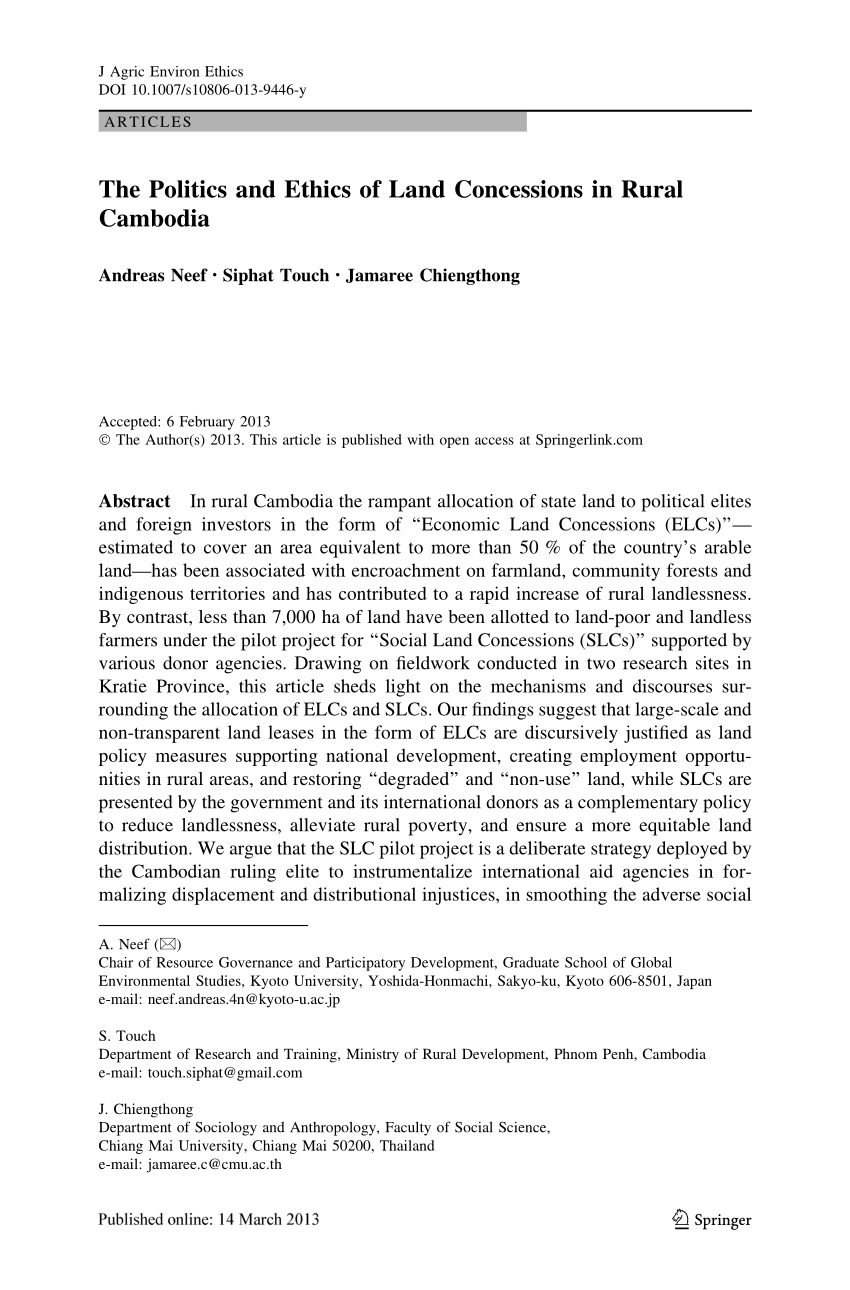Resource information
In rural Cambodia the rampant allocation of state land to political elites and foreign investors in the form of “Economic Land Concessions (ELCs)”—estimated to cover an area equivalent to more than 50 % of the country’s arable land—has been associated with encroachment on farmland, community forests and indigenous territories and has contributed to a rapid increase of rural landlessness. By contrast, less than 7,000 ha of land have been allotted to land-poor and landless farmers under the pilot project for “Social Land Concessions (SLCs)” supported by various donor agencies. Drawing on fieldwork conducted in two research sites in Kratie Province, this article sheds light on the mechanisms and discourses surrounding the allocation of ELCs and SLCs. Our findings suggest that large-scale and non-transparent land leases in the form of ELCs are discursively justified as land policy measures supporting national development, creating employment opportunities in rural areas, and restoring “degraded” and “non-use” land, while SLCs are presented by the government and its international donors as a complementary policy to reduce landlessness, alleviate rural poverty, and ensure a more equitable land distribution. We argue that the SLC pilot project is a deliberate strategy deployed by the Cambodian ruling elite to instrumentalize international aid agencies in formalizing displacement and distributional injustices, in smoothing the adverse social impacts of their very own land policies and in minimizing resistance by dispossessed rural people.

